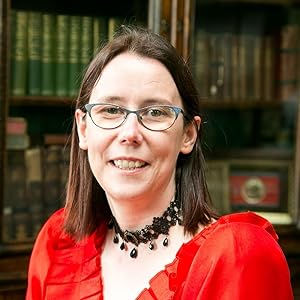The Curious Incident of the Dog in the Night-time
- authorvalpenny
- Jan 22, 2022
- 3 min read
Mark Haddon is a British novelist and poet, although his best known novel The Curious Incident of the Dog in the Night-time was published in 2003 when it won the “Whitbread Book of the Year Award”, I only discovered it last month when my friend Aileen lent it to me. We had been discussing autism and I admitted that it is a condition I struggle to understand. She lent me Mark Haddon’s book.
The Blurb
The Curious Incident of the Dog in the Night-Time is a murder mystery novel like no other. The detective, and narrator, is Christopher Boone. Christopher is fifteen and has Asperger's Syndrome. He knows a very great deal about maths and very little about human beings. He loves lists, patterns and the truth. He hates the colours yellow and brown and being touched. He has never gone further than the end of the road on his own, but when he finds a neighbour's dog murdered he sets out on a terrifying journey which will turn his whole world upside down.

The Review
The Curious Incident of the Dog in the Night-time is a book which is written from the perspective of a boy with Aspergers syndrome. Haddon’s knowledge of Aspergers syndrome, a type of autism, comes from his work with autistic people as a young man.
The hero of his book is Christopher Boone aged 15. Christopher has Asperger’s syndrome, though this is never specified.
Haddon’s study of the condition is superbly realised, but this is not simply a novel about disability. Haddon uses his narrator’s innocence as a means of commenting on the emotional and moral confusion in the lives of the adults around him.
He lives in Swindon with his father and Toby, his pet rat. He abhors all yellow and brown things, thinks he would make a good astronaut, and has never been further than the end of the road on his own until his discovery of the “murder” of his neighbour’s dog turns him into an amateur detective. He decides to investigate the “murder” but finds his father is most resistant to this. His teacher, Siobhan, however, encourages him to write his book. “This will not be a funny book,” says Christopher. “I cannot tell jokes because I do not understand them.” But it is a funny book, as well as a sad one.
Christopher’s compulsive noting of mundane facts provides comedy, especially in his dealings with the police and his special-needs classmates. Haddon includes diagrams, timetables, maps, even maths problems, thus extending the normal scope of novel-writing. He also demonstrates the rich idiosyncrasies of the autistic brain.
Christopher sees everything, remembers everything, but cannot prioritise – cannot sift out what most of us regard as important. On the day he is told his mother is dead, he records his Scrabble score, and notes that supper was spaghetti with tomato sauce. However, he isn’t callous or indifferent. He can cope with facts, with concrete detail; but emotions confuse and alarm him. The part of the book when he reads his mother’s letters is one of the most emotional things I have ever read.
Of course, autistic people are not easy subjects for novelists. Their interests are prescribed, their experiences static, their interaction with others limited. Detective fiction is the only fiction that makes sense to Christopher. As he collects facts relating to the death of the dog, he unwittingly pieces together a jigsaw that reveals to the reader the lies, grief and evasions of his parents’ lives. The pathos of Christopher’s condition is that he can never understand the havoc his very existence has wreaked in the lives of those around him, however many facts he uncovers.
Christopher’s innocence makes him vulnerable, but it protects him too. At the end of the novel we see that he is a touchstone for adult behaviour and those concerned with him have to learn to temper their emotional needs round his autistic inability to compromise. I think this book is simply brilliant and I highly recommend it.

The Author
Mark Haddon is an author, illustrator and screenwriter who has written fifteen books for children and won two BAFTAs. His bestselling novel, The Curious Incident of the Dog in the Night-time, was published simultaneously by Jonathan Cape and David Fickling in 2003. It won seventeen literary prizes, including the Whitbread Award. His poetry collection, The Talking Horse and the Sad Girl and the Village Under the Sea, was published by Picador in 2005, and his last novel, The Red House, was published by Jonathan Cape in 2012. He lives in Oxford.
Val Penny







Comments